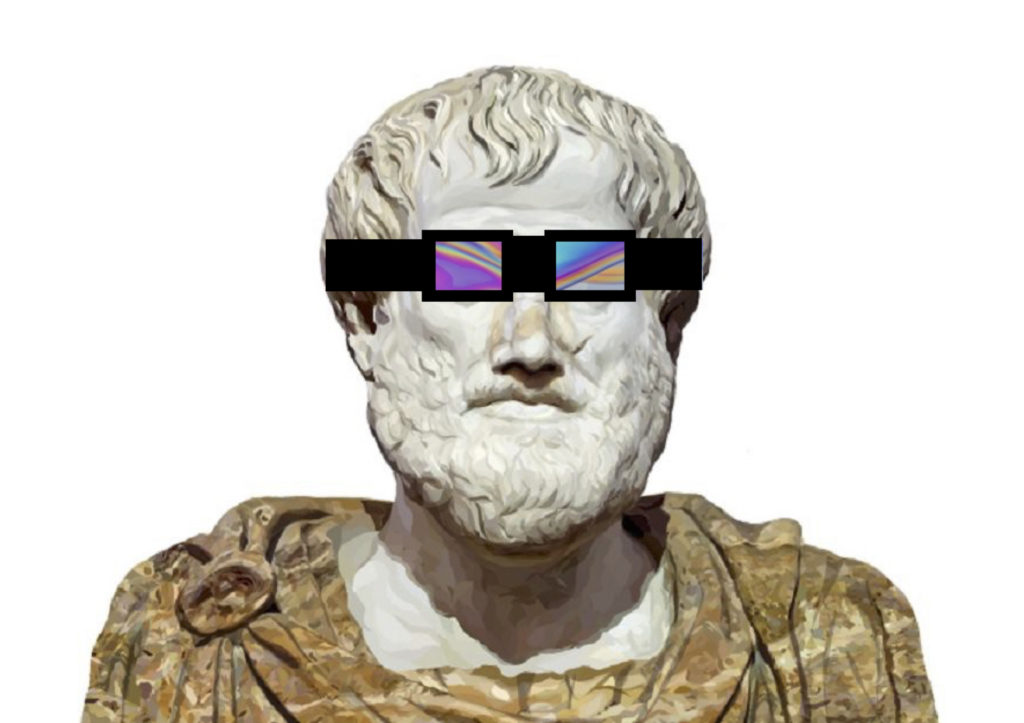Early in the morning at the Pnyx, west of the Acropolis, Aristotle and Spinoza walk and chat on the eve of the Greater Eleusinian Mysteries…
Aristotle: “But don’t we say that the body is defined in two ways: as a compound of form and matter, on the one hand, and, in physical terms, by its figure, its volume, and its parts, on the other hand?”
Spinoza: “I’m willing to leave your definition of the body as a compound of form and matter for another occasion – I’ll be returning to Athens to visit a friend during the next Dionysia, maybe we can meet then again, should you not have already returned to Stagira, that is. If only we could reach now some agreement on your latter point: what you call the physical definition of the body… But I don’t see it likely!”
Aristotle: “By Athena, I’m curious about it. What objections can you make to it?”
Spinoza: “A very simple one, to begin with: I rather view the body, physically speaking, as being defined instead by its capacity of affecting other bodies and by its capacity of being affected by them.”
Aristotle: “Do you mean to say that a body is what it feels?”
Spinoza: “If you like to put it that way…”
Aristotle: “But isn’t it that what it feels, it feels it because it is a body of a certain type, belonging to some category of things: the body of a dog, that of a horse, etc.?”
Spinoza: “I would say things are the other way round: depending of what a body feels, it can become many things. For its affects produce a habit. And it is this habit that defines what a body is.”
Aristotle: “But then, a horse working in a farm would be more similar, say, to a bull also working in a farm than to a free horse like those that hide in the forest, to the delight of Artemis.”
Spinoza: “Indeed.”
Aristotle: “By Apollo, what you say puzzles me!” For it’s as though you were saying that if one roars like a lion, one would become a lion…”
Spinoza: “Without one’s substance turning into the substance of a lion, though.”
Aristotle: “Alas! Becoming-lion would then be something that qualifies an action, not a subject. That is to say, one would be able to become-lion by behaving like a lion does, yet without becoming a lion as a subject.”
Spinoza: “Indeed. And it would be enough for one to behave like a lion in some respects in order to become-lion, like we say that a metonymy turns a part of something into such thing.”
Aristotle: “By Zeus!”
Spinoza: “It’s me who’s now surprised, oh Aristotle! By your puzzlement, I mean. As Herodotus, you may recall, mentions something similar to this in Book X of his Historíai, when describing the thoughts and rituals of the Matses, who live in the forest placed by the gods beyond the Pillars of Heracles…”

Aristotle with iridescent glasses, which produce on s/he who puts them the effect of blurring the boundaries between all colours… and things.

Beau-ti-ful 🙂
Thank you!! :))